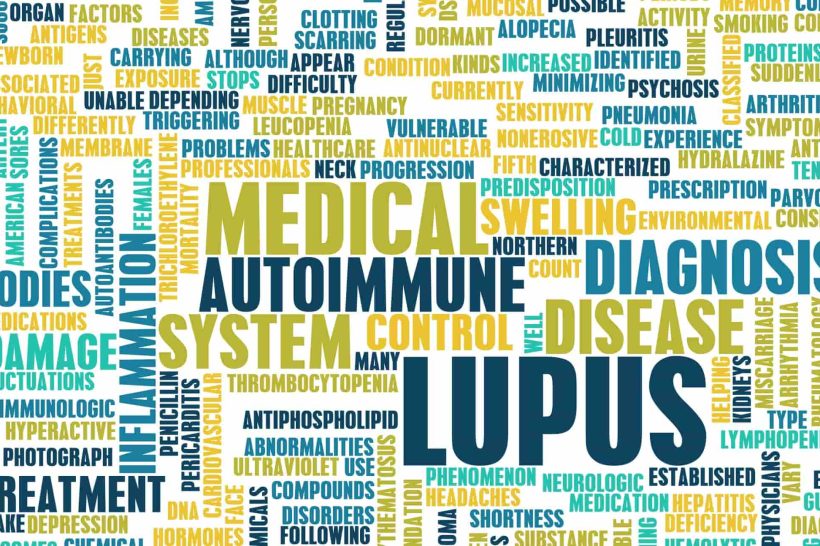Doctors have long struggled to find the best treatment for their lupus patients. But a recent case study published in the American Journal of Endocannabinoid Medicine found that medical marijuana could prove to be an effective treatment for symptoms of the disease.
In this post, CannaMD will dive into this promising case study and explore what it might mean for the future of lupus treatment.
What is Lupus?
The Centers for Disease Control and Prevention (CDC) defines lupus as a chronic autoimmune disease that can cause pain and inflammation in any part of the body. The most common type of lupus is systemic lupus erythematosus (SLE). Systemic lupus erythematosus causes the immune system to attack its own tissue, leading to widespread inflammation and tissue damage in the organs it attacks. The disease can range from being mild in severity to life-threatening.
People with lupus often experience fatigue, fevers, joint swelling, and skin rashes. Symptoms can also include arthritis, seizures, sun sensitivity, and problems with the kidneys, heart, or lungs.
Scientists currently don’t know what causes lupus, but the prevailing belief is that it can be triggered by genetic, environmental, or hormonal factors. Unfortunately, lupus has no known cure, so doctors and patients are left to treat lupus symptomatically.
Many of the medications traditionally used to treat lupus are not specifically designed to tackle the disease, and many of them cannot be used during pregnancy. This is especially problematic because the majority of patients with lupus are young women of childbearing age.
For all these reasons, there is a pressing need for new treatment methods that can be safely and effectively used in all patients with lupus.
CBD May Replace Traditional Lupus Drugs
A case study published in the American Journal of Endocannabinoid Medicine documented the treatment of a 50-year-old woman with lupus, rheumatoid arthritis, and Raynaud’s disease. The study results provide a promising glimpse into what cannabis may be able to do for lupus patients.
As the authors of the study explain:
Multiple substantiated sources suggest that CBD’s anti-inflammatory properties are significant. There also are anecdotal patient reports of symptom relief when using CBD products for inflammatory conditions. However, there currently is a lack of general knowledge about the effect of cannabinoids in autoimmune diseases and potential dosing regimens.
During the case study, the patient stopped taking all disease-modifying anti-rheumatic drugs (DMARDs) two weeks before the start of the study. She was then started on a 28-day regime of 200 mg of CBD-isolate three times a day. Researchers found “significant” improvement in pain and mobility symptoms within 72 hours, reaching maximum benefit by day ten of the study. Improvement in mood reached its maximum benefit by day 21.
After the study, the patient was able to lower her dose and continue treating her symptoms with CBD alone.
The researchers summarized:
Since completion of the 28-day CBD trial at the end of December 2018, the patient has been using nothing but CBD for her conditions with much success. Her CBD dose was titrated from 600 mg daily for 2 months, to 400 mg daily for 2 months, and 200 mg daily thereafter.
The patient discontinued DMARDs 2 weeks prior to start of study and has not resumed any prescribed medications for rheumatic diseases since that time nor does she have any interest in doing so.
This led the study authors to conclude:
This case demonstrates that a highly purified (99.9%) CBD isolate tincture of 600 mg daily was well tolerated and appeared highly effective in decreasing systemic inflammation while improving quality of life and pain scores on highly validated assessment tools. CBD did not appear to affect the kinetics of existing medications or lead to significant drug-drug interactions.
An Ongoing Clinical Trial
The promising research that has come out about CBD and other cannabinoids in recent years has prompted further research into cannabis as a treatment for disease. A Yale medical doctor is among many scientists actively investigating the potential benefits of cannabinoids today.
Dr. Fotios Koumpouras is a Yale rheumatologist specializing in treating SLE and related diseases. Currently, Koumpouras heads several clinical trials that evaluate potential treatments for people with lupus. One of these clinical trials explores a molecule that mimics CBD.
Yale Medicine summarizes the goals of the study, stating that the clinical trial aims to:
[E]xamine whether a drug using a synthetically created cannabinoid molecule that binds preferentially to CB2 receptors (called Lenabasum) can help ease pain and inflammation in patients with lupus.
The study began in 2018 and is currently in Phase II of clinical trials. Researchers hope the data gathered from the multi-site clinical trial can help paint a better picture of cannabinoids and their potential for treating lupus and other inflammatory conditions in the future.




